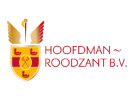It has been five years since Russia introduced a boycott of, among other products, all fruit and vegetables from several countries. These countries include the EU, the United States, Australia, Canada, and Norway.
This ban on imports was valid for one year from Thursday, 7 August 2014. It has, however, since been extended four times. We asked Belgian and Dutch exports about its consequences. Today it is Lennart van den Heuvel of the Dutch company, Hoofdman Roodzant's, turn.
 When asked how he remembers the start of the boycott, Lennart answers, "It has been five years already. Time flies. I cannot really say how I remember it because I am more focused on looking ahead."
When asked how he remembers the start of the boycott, Lennart answers, "It has been five years already. Time flies. I cannot really say how I remember it because I am more focused on looking ahead."
"What I do remember is that it was a very hectic time. Everything was turned upside down. There was a lot of uncertainty about what was going to happen. I do remember a lot of people speculating, and perhaps hoping that everything would be over quickly. I often heard calls of 'but what will the Russians eat?' right after the boycott started," Lennart recalls.
"Well, I can tell you no one has gone hungry in Russia. Putin simply used the boycott to cleverly accelerate his country's own production and investments. He has managed this nicely in the past five years. Greenhouse builders and tree growers have been busy in Russia in the past five years. I do not want to say Putin planned it. These developments are, however, a nice by-product for him."
"The boycott had serious repercussions for Hoofdman-Roodzant. We traditionally focused on Russia. It was our biggest market. We were one of the largest exporters to this country. We, unfortunately, lost a lot of sales because of the ban. We also, unfortunately, had to downsize," Lennart says.
"We could not immediately absorb our revenue losses in other markets. We then continued with what was left, in our down-sized form. We were an all-round exporter. The export of Dutch greenhouse vegetables to supermarkets had, however, become a focal point in the few years before the boycott. "
"We worked closely with various growers associations in the Netherlands. We functioned as the Russian export partner. Unfortunately, the embargo decimated these volumes," he continues.
Did the boycott accelerate the search for new markets?
"We started out working on new markets at Hoofdman Roodzant. However, in 2016, we set up a new company, 'FreshPride'. This company began investigating new markets. These new markets are in the Middle East, India, and Southeast Asia. Later, Greece was added to this list."
"In the beginning, it was quite tough to find our place. But we do hope to achieve a turnover of €10 million this year again. We are focusing particularly on direct containers from various countries to these markets. We mainly source our trade from Brazil, South Africa, Peru, India, and Southern Europe," Lennart continues.
He still has daily contact with his Russian clients. "We have noticed that many companies have not survived. Their demise is due to the complexity of the way business has been done in Russia in recent years. Many European players, especially Dutch ones, have left the scene. This is because Russian exports were not their core business anyway. The risks also just kept increasing."
"We, however, decided to use all our knowledge of the market. We wanted to help people who still wanted to export to Russia, but found it to be a difficult market. We have been able to play this role successfully for many products from different countries. These include products from South Africa, South America, India, Egypt, and Peru," the exporter goes on to say.
"As market specialists, we can fulfill a role in the Russian market. Due to its complexities, this market often does not gain producers' attention. With our help, producers can still successfully enter this market," concludes Van den Heuvel.
 For more information:
For more information:
Lennart van den Heuvel
Hoofdman-Roodzant B.V.
40H Handelscentrum ZHZ
2991 LD Barendrecht, NL
Tel: +31 (0) 180 617 011
Fax: +31 (0) 180 618 023
L.vandenHeuvel@hoofdman-roodzant.nl
http://hoofdman-roodzant.nl/nl/
